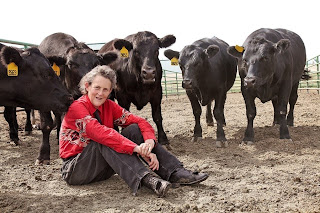Autism and Complex
Needs Conference 2013
In October I was given the opportunity to attend the Autism
and Complex Needs conference run by the National Autistic Society in
Birmingham. Learning about Autism is
important to me, so that I can support all our pupils who are on the spectrum,
and advise other colleagues on how best to manage certain situations, to ensure
the young person receives our very best quality of care and support.
The conference opened with an excellent welcome by the
Chair; Professor Barry Carpenter OBE. He focused on the issue that Autism and
complex needs have not become more prevalent, but more widely acknowledged,
diagnosed and understood than ever before.
Therefore as educators, we must take responsibility for not only
recognising their conditions positively, but ‘navigating their routes to
learning’. We as a school can treat each
pupil with the respect they deserve for their individual needs, and help them
on the way to becoming great members of society without feeling ‘different’ to
neurotypical young people.
This opening talk helped me understand that even though some
of our pupils may have the same condition ‘on paper’ this does not mean they
have the same needs when it comes to their education. Professor Carpenter then discussed with us
how important it was to not just focus on the ‘main’ diagnosis a young person
receives e.g. ASD. They could also have
other conditions that are needing attention, such as ADHD, OCD, and Epilepsy. We must not design our plan for the young
person around their one condition, it must include all aspects of their
requirements. Modifying their learning
plan and education will help them on the pathway to achieving what we know they
can.
After a lovely cup of tea J we moved on to more in-depth Key Note speakers, and
my absolute favourite was Professor Emily Simonoff from King’s College
London. Her talk was very engaging and
all points backed up with reams of statistical evidence. She mentioned frequently how important it was
to separate each symptom from the ‘main condition’ e.g. Autism. For example if you have an anxious child who
is also on the Autistic spectrum, don’t just dismiss their anxiety as a part of
their already known condition, but investigate what else could be causing
this.
Her talk went into very interesting aspects such as
depressive anxiety could be linked to an over-focus on hostility. If the pupil is becoming hostile towards you,
then give them space! Don’t force them to interact with other pupils in their
class. They will do this when their anxiety has dispersed, and then feel a
greater sense of achievement when interaction is made. Points were then
discussed on how cognitive behavioural therapy was excellent at helping
anxiousness in young people, and has been proven to lower cortisol levels and
reduce social anxiety, rather than rely on medication.
Temple Grandin is a celebrity for many reasons. She revolutionized the
cattle industry with her cattle handling facility designs and insight into
‘thinking like the cows’.
Dr. Rona Tutt, OBE led the stream session that I then
attended, who was such a lovely lady and Past President of the National
Association of Head Teachers (NAHT). She
opened the session by telling us about Temple Grandin (see below) who you may
have heard of before. Temple is a very famous lady who does have the label of
‘autistic’ but has challenged this at every turn, and written many books about
how important it is to understand the world from someone’s perspective;
labelled autistic or not.
Dr. Tutt explained to us how even when diagnosed with a
condition such as Autism, the assessment of their individual circumstance
should not end, as other co-occurring conditions could also be in
existence. As well as encouraging
communication, we as Educators should also give them the space to work on their
speciality. So for example; if Pupil A
hates doing homework, give him or her the space after completing a short piece
of homework, to focus on what they love - if this be cooking, playing sports or
computer games. Associating this reward
with work completed with help them progress onwards into adult life.
The one thing I will take away from this extremely thought-provoking
conference, is to not take the ‘label’ as face-value. Always be flexible, and always understand
that each one of us is different, even if we have the same condition. It can be
managed differently for each pupil, and by finding out which type of learning a
pupil prefers, we can help them work towards their goals.
“Everyone is a genius. But if you judge a fish on its ability to climb a tree, it will live its whole life believing it is stupid”
-Einstein.
Elizabeth Jeffries
School Manager



